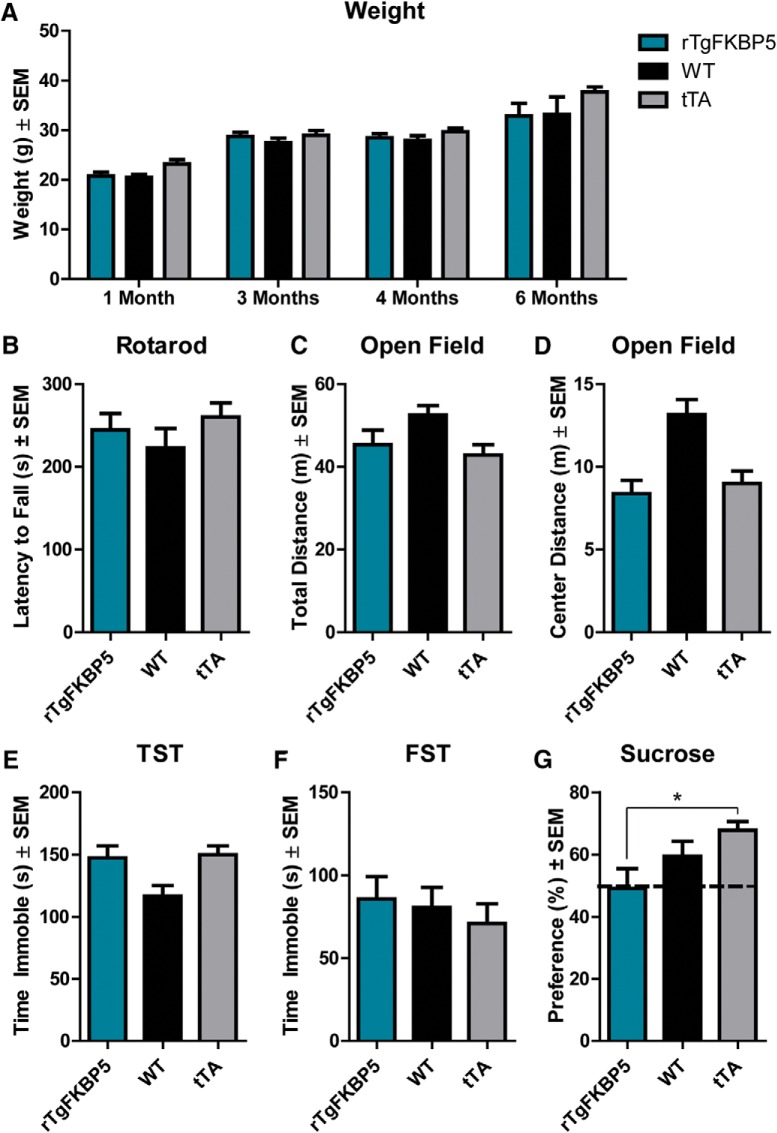Figure 3.
FKBP51 overexpression does not alter basal weight, motor ability, general anxiety, or depression-like behavior but has modest effects on pleasure seeking behavior. A, Whole body weight for rTgFKBP5, WT, and tTA mice was recorded at the indicated time points N ≥ 7/genotype at each time point. B, Time on the rotarod apparatus in rTgFKBP5 (N = 16), WT (N = 22), and tTA (N = 20) mice. Total distance traveled (C) and distance traveled (D) in the center in the open field task was measured for rTgFKBP5 (N = 16), WT (N = 22), and tTA (N = 19) mice. Total immobility time was recorded over 360 s of the (E) TST and (F) FST. G, Sucrose preference was measured in rTgFKBP5 (N = 16), WT (N = 22), and tTA (N = 20) mice. Consumption was measured by the difference in the weight of bottles filled with sucrose water versus tap water. Sucrose preference percentage ± SEM was determined by the amount (g) of sucrose water consumed versus the amount of total water consumed over the 2-h task. See Extended Data Figure 3-1 for sex differences. *p = 0.0219.

